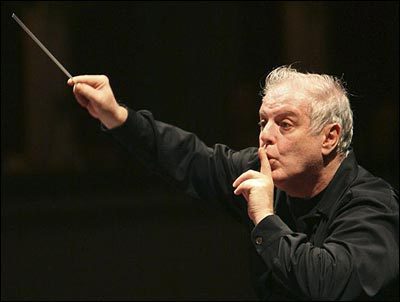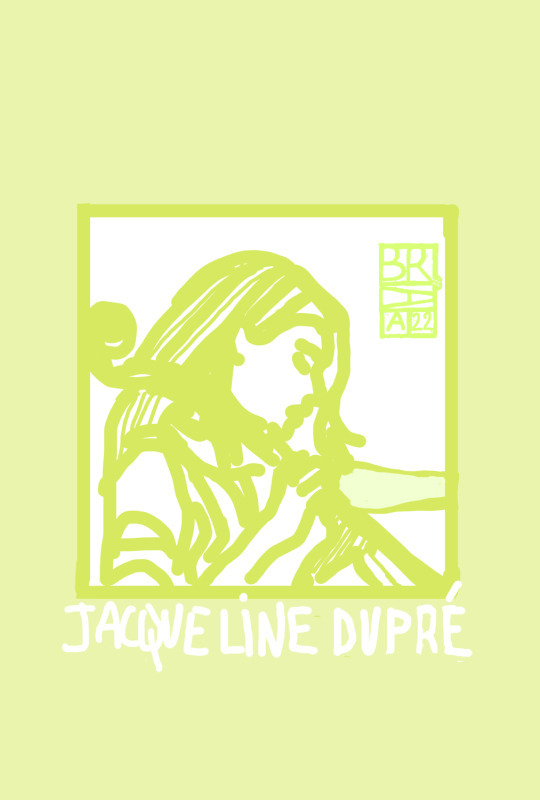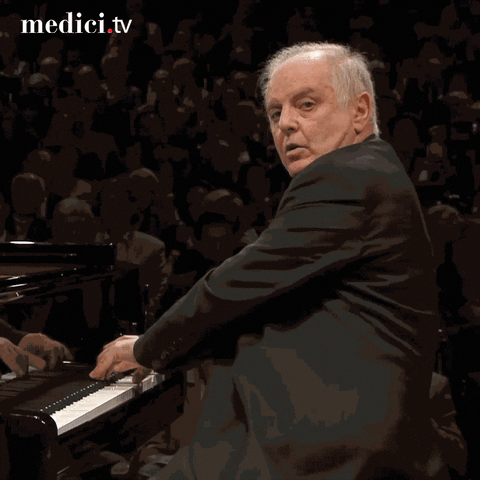#Barenboim
Text
There are, in fact, two different Giovannis in the opera: the one who exists before the Commendatore’s death, and the one who is left with the consequences of murder afterwards. The first Giovanni is practically nonexistent, as the duel takes place in the first scene of the first act.
Giovanni (...) is certain that terrestrial justice is powerless over him. Until the statue of the Commendatore appears in the second act, this proves to be true, and the plot remains realistic, based on human actions and human nature. With the Commendatore, however, Mozart introduces a higher justice, a sudden metaphysical dimension which returns us to the moment of the murder in the beginning of the opera. At this point the cyclical nature of the drama becomes clear and we see that this, the introduction of divine justice, was already inherent in the murder itself (...).
In order to capture the deeper sense of this seemingly bizarre dramatic construction, one must regard the entire opera first through the eyes of Giovanni, then through those of Leporello, and finally from Ottavio’s point of view. Ottavio, who is often portrayed as a somewhat ambiguous, if not weak character, is in fact not the least bit ridiculous, and the proof lies in the importance of the music Mozart writes for him. Perhaps Ottavio is a friend of Giovanni’s, perhaps even an intimate friend. It is not explicitly described this way in the score, but I find it highly probable. The fact that Giovanni seduces a peasant woman like Zerlina is not disconcerting to him; among aristocrats, this is perfectly acceptable behaviour. To do the same with a woman of his own class, however, no less than Ottavio’s fiancée, is truly disturbing, and to murder her father in the process, even if unintentionally, unforgiveable; Giovanni breaks the unwritten rules of the cavalier and now appears to Ottavio a blasphemous individual, one who disregards moral principles and norms.
Still one of my favorite descriptions after all these years
17 notes
·
View notes
Text

Daniel Barenboim, noto pianista e direttore d’orchestra, è nato a Buenos Aires da genitori russi di origini ebraiche, ma oltre a quella argentina, ha cittadinanza israeliana, spagnola e, dal 2008, anche palestinese.
Dirige un’orchestra e un’accademia musicale composta da israeliani e palestinesi nella convinzione che la musica possa essere un linguaggio per favorire l’empatia, il dialogo, la mutua comprensione e la pace.
Dopo la recrudescenza bellica tra Hamas e Israele, il maestro ha raccontato alla stampa internazionale il dolore per l’attacco del 7 ottobre, ma ha anche diffuso una serie di messaggi di speranza e di pace che è il caso di ricordare e diffondere.
Ne parlo qui:
3 notes
·
View notes
Text
3 notes
·
View notes
Text
youtube
Beethoven’s Ninth Symphony, premiered in 1824, is considered one of his most famous works, even though he was completely deaf at the time of its performance. The symphony is a powerful testament to the human spirit, full of energy and culminating in the triumphant "Ode to Joy."
#Beethoven#SymphonyNo9#OdetoJoy#Barenboim#WestEasternDivanOrchestra#symphony#music#music discussion#musician#youtube#music education#education#music discovery#classical composers#classical#Youtube
0 notes
Text
Jacqueline Dupré
The tragedy of du Pré’s brief career is still fresh in the public memory and can be summarised here. She was born in Oxford on 26 January 1945 into a middle-class family in which music was important: her mother was a fine pianist and a gifted teacher. The French-sounding name came from her father’s Channel Islands ancestry. Just before her fifth birthday, when she was already showing musical…

View On WordPress
0 notes
Photo

0 notes
Text
La Trucha de Schubert
Pieza musical que evoca a la epopeya de los peces que van contracorriente hacia nuevos destinos, esa lucha del instinto para poder dejar el legado, dejar el cardumen de la generación venidera, para ello, es la lucha contra las fuerzas de la naturaleza, Schubert, nos remite a esa lucha, nos envuelve en esa naturaleza, el campo lleno de naturales fuerzas, y ese coraje de seguir a pesar de los obstáculos, el violín, el chello, la viola, el contrabajo y el piano en muy hermosa armonía que eleva nuestro espíritu a gestas interiores como las de la trucha.
Concierto memorable de Jackeline Du Pre, Daniel Barenboim, Zubin Metha, Perlman and Zukerman.
0 notes
Text
Review of "Daniel Barenboim: Encores"
Music of Albeniz, Chopin, Debussy, Liszt, Schubert, and Schumann. Daniel Barenboim, piano. DG 486 0932
By now, Daniel Barenboim’s name is undoubtedly familiar to almost every classical music fan far and wide. He came to my attention in the late 1960’s when I was becoming ever more serious about listening to and collecting classical music. He was among a handful of pianists whom I admired, among them Maurizo Pollini, Van Cliburn, Vladimir Ashkenazy, and Martha Argerich, which was pretty heady company.
To read the full review, click here:
John J. Puccio, Classical Candor
#Classical Music#Classical Music Reviews#Classical Music Albums#Classical Music Album Reviews#Music#Music Reviews#Music Albums#Music Album Reviews#CD#Compact Disc#Piano#Barenboim#Schubert#Schumann#Albeniz#Chopin#Liszt
0 notes
Text

2014 Vienna Philharmonic New Year's Concert with Daniel Barenboim — Johann Strauss I, Radetzky March, Op. 228
@tojibignaturals
228 notes
·
View notes
Photo

I can't stand being in Chicago anymore and hearing the Brahms Violin Concerto in the elevator. Because that shows me that when they come to the concert hall they listen to it in the same way.
- Daniel Barenboim
#barenboim#daniel barenboim#music#classical#classical music#Sound#arts#culture#concert#maestro#concert hall#muzak#scourge of muzak#elevator music#dumbing down
75 notes
·
View notes
Text

Jacqueline du Pré y Daniel Barenboim
74 notes
·
View notes
Text
Gaza - La via dell’umanesimo, della giustizia dell’uguaglianza secondo Daniel Barenboim.
Suonare per il dialogo e la comprensione tra le parti in conflitto.
La West-Eastern Divan Orchestra e la Barenboim-Said Akademie.
Ne parlo qui:
#gaza#guerra#pace#conflitti#conflitto arabo-israeliano#Palestina#palestinesi#israele#israeliani#daniel barenboim#edward said#said#barenboim#camille saint saëns#music#musica#aitan
0 notes
Text
youtube
Jacqueline du Pré plays Dvořák - Cello Concerto in B minor, Op. 104, B. 191
London Symphony Orchestra
cond: Daniel Barenboim
Filmed live at the Royal Albert Hall in September 1968
53 notes
·
View notes
Text

Les belles âmes devraient être heureuses ; Seuls les méchants sont malheureux. Il me semble que le bonheur réside dans une vision lumineuse de la vie et dans l'impeccabilité du cœur, et non dans l'extérieur.
Fiodor Dostoïevski
***
Je suis de nouveau en vie et il y a un miracle devant ma fenêtre
Il dispersait ses fleurs comme des étoiles.
Désolé, mais toutes mes pensées tournent autour d'une seule chose :
Combien nous a été donné - peu de choses se sont passées...
La vie est chaque jour plus douce et plus désirable.
Et son goût est plus aigu, comme celui d’une épée sans fourreau.
Alors vis sans y penser
Comme le monde est cruel et désespéré.
Jan Barenboim
#dostoïevski#jan barenboim#vie#ame heureuse#malheureux#fevrier 2024#les-portes-du-sud#@kamel#abencerages
9 notes
·
View notes
Text
Beethoven's Ninth Symphony
Ludwig van Beethoven (Bonn, Germany – 1770) began his musical education at an early age under the tutelage of his father and later, Christian Gottlob Neefe. At the age of 17, Beethoven moved to Vienna to study with Joseph Haydn, where he quickly gained a reputation as a gifted pianist and composer.
Beethoven’s Ninth Symphony, premiered in 1824, is considered one of his most famous works, even…

View On WordPress
#Barenboim#Beethoven#classical music#music#music discussion#Music Education#Ode to Joy#Our Mind on Music#Symphony#Symphony No 9#West Eastern Divan Orchestra
1 note
·
View note
Text
This is my favourite version of my song. The pianist is Daniel Barenboim; I personally believe that his interpretation of this song is the best. Best is subjective, but that is my opinion.
~Nocturne🌘🎵
9 notes
·
View notes